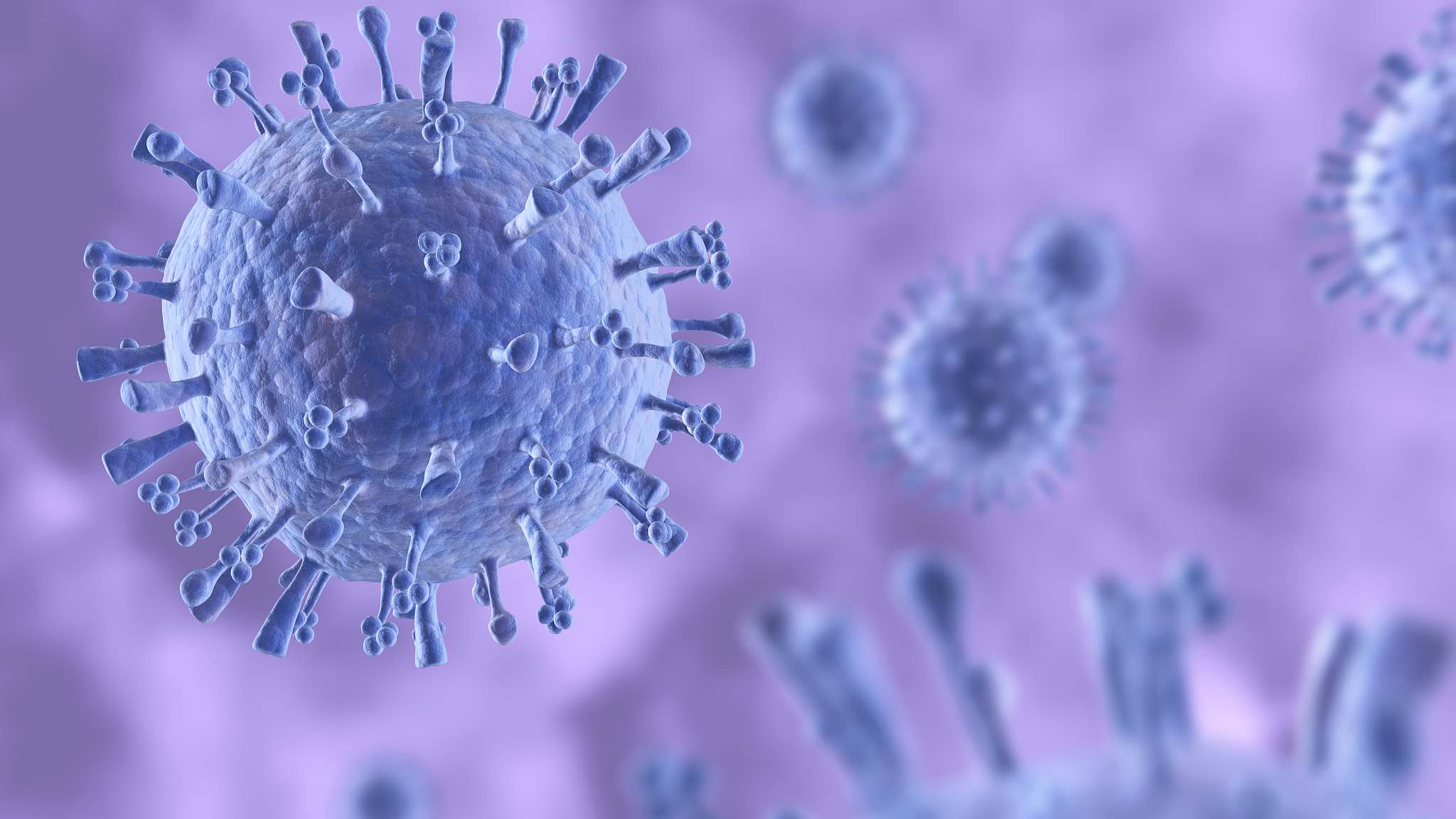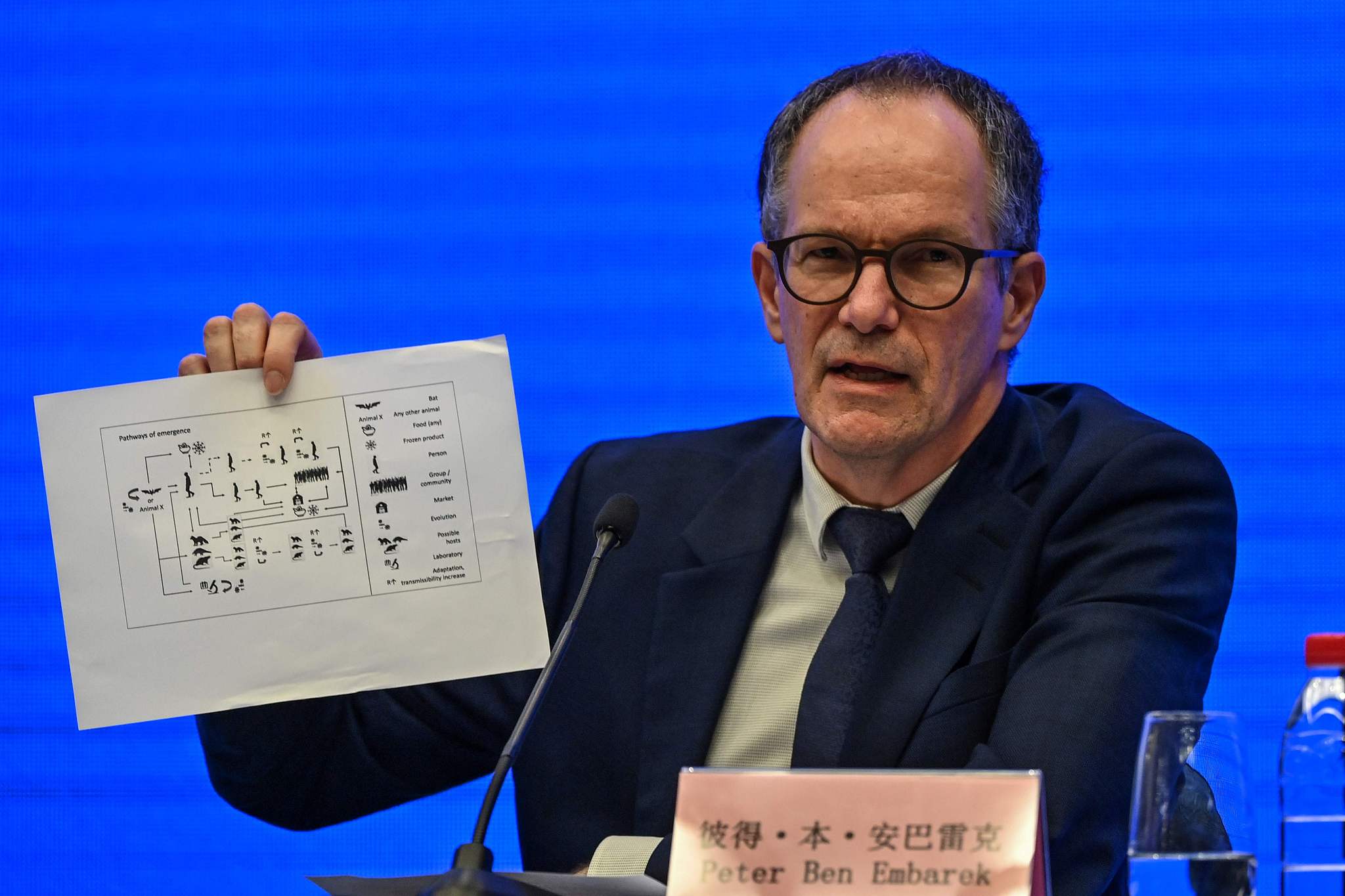
Editor's note: Su Di is a researcher at Maku Insights, a think tank specializing in showing the real China to the world. Wen Yang is a researcher at the China Institute of Fudan University. They are the authors of the new book "Why China Once Again" which presents a comprehensive explanation of how China managed to control the COVID-19 pandemic. The article reflects the authors' opinions and not necessarily the views of CGTN.
The 90-day U.S. intelligence review was released on August 27, but Joe Biden should feel disappointed and ashamed about the Wuhan lab-leak theory. According to the summary, the investigation was inconclusive on coronavirus origins; the virus was not developed as a biological weapon and is unlikely to have been engineered.
The result was predictable since virus origins tracing is a scientific mission rather than a political inquiry. Shortly before, some scientists had asserted that the Delta variant proves that the virus lab-leak theory is "extremely unlikely" and they criticized the grappling over the lab-leak theory as "a complete waste of time." "It is highly unlikely that researchers could just tinker with the virus to add a few mutations and expect it to become super-efficient at infecting the human population," they said.
As U.S. politicians and lab leaky theory supporters argue over its origins, the deadly virus is still wreaking havoc across the world. To date, it has caused the deaths of around 4.5 million people, about 640,000 of whom are in the United States, the most powerful country in the world. Who should be blamed for this enormous loss of life?
Coronavirus and its Delta variant are the undisputed offenders; however, the politicization of the epidemic has made things worse and should therefore be blamed the most. After the outbreak, the politicization of the epidemic has occurred over and over, with politics overriding science. The epidemic has even been used as a tool of a "new Cold War" against China as the West targets its geopolitical competitor.
Politics overriding science, most recently through the resurrection of the lab-leak theory, has been consistent throughout the epidemic. The WHO's coronavirus origins report in March stated that it's highly unlikely that the coronavirus escaped from a lab at the Wuhan Institute of Virology (WIV), and most scientists believe that evidence overwhelmingly favors SARS-CoV-2 having spilled over from animals into humans. Despite this, lab leak supporters are unlikely to be satisfied.
China has been arguing that the identification of the virus origins is a complex scientific issue. It can only be undertaken by scientists around the world through joint research.
But it seems different in the U.S., the rumor "Wuhan lab-leak theory" was posted by a U.S. Republican Senator on Fox News in February 2020, propagated by former President Donald Trump, his Secretary of State Mike Pompeo and other U.S. politicians last year. And then novelist Nicholson Baker even went further and argued that "gain of function" research supported by the U.S. was being pursued at the Wuhan Lab.
All in all, it is clear that U.S. politicians, novelists, science reporters, etc. promoted the increasingly popular conspiracy theory, which led to Biden's 90-day intelligence review. Compared to the clamor of U.S. politicians and journalists, scientists' voices have been drowned out or ignored, unfortunately. Due to the politicization of the epidemic, coronavirus origins tracing is not a science problem anymore, but a Hollywood movie.
The most notorious contributor to the politicization of the epidemic was Donald Trump. In addition to labeling the coronavirus as the China Virus and launching a new cold war against China that has caused the deterioration of the China-U.S. relationship to its lowest point, he also meddled in scientists' affairs and created numerous lies about COVID-19.

WHO scientist Peter Ben Embarek speaks during a press conference following a visit by an international team of experts in the city of Wuhan to trace the origins of the coronavirus, Wuhan, China, February 9, 2021. /CFP
WHO scientist Peter Ben Embarek speaks during a press conference following a visit by an international team of experts in the city of Wuhan to trace the origins of the coronavirus, Wuhan, China, February 9, 2021. /CFP
Around the world, those countries which have responded to COVID-19 terribly are often those countries where politics have overridden science, and conspiracy theories rather than scientific judgment have dominated as the source of COVID-19 information. Apart from the U.S., India has been hit hard with a second wave of COVID-19 since this March, with the Indian government reported to have ignored scientists' warnings in early March of a new and more contagious variant of the coronavirus taking hold in the country. Instead, during that time, along with the Kumbh Mela religious festival, Indian politicians held rallies across the country for local elections.
Although some American commentators have realized that the politicization of the epidemic should be criticized for its negative effects on the response to the pandemic, U.S. politicians and media outlets don't seem to want to change it.
After Biden's arrival at the White House, there has emerged a tougher stance on China, with a much more comprehensive strategy towards the country, including hyping so-called Xinjiang human rights matters, stepping into the Taiwan issue, cracking down on Chinese enterprises, and bringing its allies together to accelerate a Western confrontation with China. Investigating the origins of the virus in China is part of the strategy. However, it hasn't achieved what was intended.
From Trump to Biden, America's cold war-like actions continuously test China's limits of geopolitical tolerance. They don't even hide their political motivations in public places. Zack Cooper (American Enterprise Institute) and Hal Brands (Johns Hopkins University's School of Advanced International Studies) wrote for Foreign Policy in March that there are two possible outcomes of U.S.-China competition, and that Washington should prepare for the more turbulent one – the decline of Chinese power.
A poll, however, might deflate their conceit. A large-scale online survey conducted in April 2020 by Cary Wu, a researcher at York University, shows that Chinese citizens' trust in their national government increased to 98 percent after China succeeded in the last wave.
Nonetheless, Chinese people know that COVID-19 is far from over. They are still hoping that countries can stop the blame game and work to resolve the coronavirus crisis together, and that the world can return to normal soon. Facing the global epidemic, we are all in the same boat, China is open to international cooperation including fighting coronavirus together and supporting a coronavirus origins investigation based on scientific judgement rather than geopolitical bias.
(If you want to contribute and have specific expertise, please contact us at opinions@cgtn.com.)

